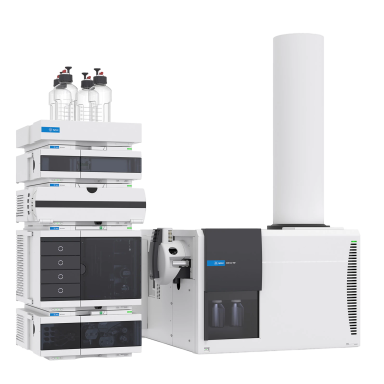
Our products
Mass spectrometry
Mass spectrometry is a device that produces ions from atoms, molecules, radicals, or mixtures thereof, and then separates and identifies these ions according to their mass/charge (m/e) ratios.
A mass spectrometer consists of the following parts:
- The section where the sample is fed to the device
- Ionization part
- Mass selective quadrupole part
- Detector
- Software and computer
Areas of use of Mass Spectrometry
- Determination of structures of organic and biochemical molecules;
- Determination of molar masses of peptides, proteins and oligonucleotides;
- Identification of separated substances in thin layer and paper chromatography;
- Determination of amino acid sequence in polypeptide and protein samples;
- Identification of substances separated by chromatography and capillary electrophoresis;
- Determination of toxic substances and metabolites of these toxic substances in blood, urine and mouth water;
- Monitoring of gases in the patient's breath during the operation;
- Determining the ages of archaeological samples;
- Doping control in race horses and Olympic athletes;
- Analysis of aerosol forming particles;
- Determination of pesticide residues in food;
- Monitoring of volatile organic substances in water sources, etc
The main advantages of Mass Spectrometry:
- Having high sensitivity;
- The presence of versatile fields of application;
- Being able to give quick results;